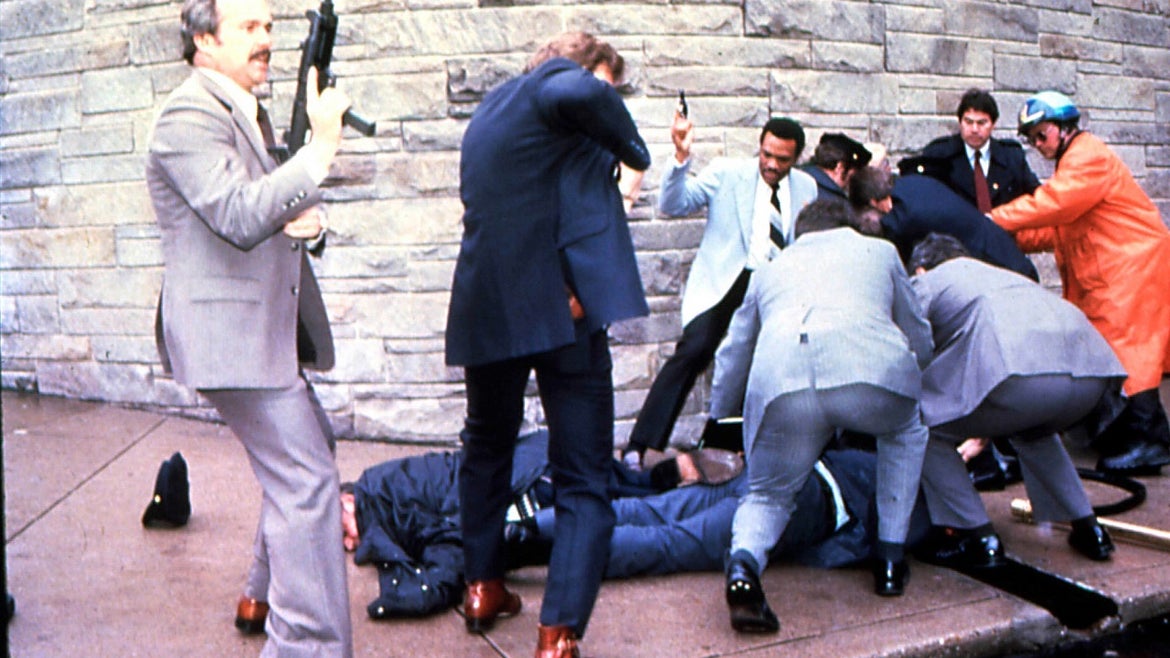The would-be assassin of President Ronald Reagan will walk free next year, a federal judge ruled Monday.
John Hinckley Jr., who tried to assassinate President Ronald Reagan in 1981, will be unconditionally released, starting next June, a federal judge ruled Monday.
Hinckley, who is now 66, was allowed to leave a government psychiatric hospital in 2016 to live with his mother in Williamsburg, Virginia. Monday's court decision followed an announcement last week that the Justice Department would end its legal and medical supervision of the man who shot the president and three others outside a Washington, D.C., hotel.
"I am going to, after all these years, grant unconditional release to Mr. Hinckley," said U.S. District Judge Paul Friedman.
“At this point the ball is in Mr. Hinckley’s hands,” Assistant U.S. Attorney Kacie Weston said at Monday's hearing. “The government agrees if he continues to do what he is doing between now and June 2022, he would be granted his unconditional release.”
Hinckley was 25 when he opened fire at the president. He shot Reagan, White House Press Secretary James Brady, Secret Service agent Timothy McCarthy and Washington police officer Thomas Delahanty.
Brady was left paralyzed from the attack and became an outspoken advocate for tighter gun control laws. He and his wife established what is now called the Brady Campaign to Prevent Gun Violence.
Reagan suffered a lung wound, but quickly recovered.
Hinckley was found not guilty by reason of insanity by a federal jury in 1982, and confined to a mental institution. HIs case is one of the most famous diminished capacity cases in U.S. legal history and prompted revisions of the so-called "insanity defense" across the country.
He said he tried to kill the president to impress actress Jodie Foster, to whom he sent dozens of letters and gifts while stalking and harassing her.
"As you well know by now I love you very much. Over the past seven months I've left you dozens of poems, letters and love messages in the faint hope that you could develop an interest in me," he wrote to Foster before his assassination attempt.
"Although we talked on the phone a couple of times I never had the nerve to simply approach you and introduce myself. Besides my shyness, I honestly did not wish to bother you with my constant presence. I know the many messages left at your door and in your mailbox were a nuisance, but I felt that it was the most painless way for me to express my love for you," Hinckley wrote.
After the judge allowed Hinckley to move in with his mother five years ago, he imposed restrictions on travel and internet use. Hinckley's mother died last year at age 95. She had become an advocate for mental health initiatives.
Friedman said Monday he planned to lift the remaining restrictions and that Hinckley's mental health issues are "in remission" and he no longer presents a danger to himself or others.
Hinckley paints and plays the guitar. He was allowed last year to release his writings, artwork and music under his name after earlier being limited to anonymous releases. Before the pandemic, he worked at an antique mall. He also established a YouTube channel.
It is time, the judge said Monday, for Hinckley to “live out his life, interacting with other people, and do so productively, doing his art and doing his music . . . in his own piece of the world.”
A written ruling is expected later this week.
Related Stories






